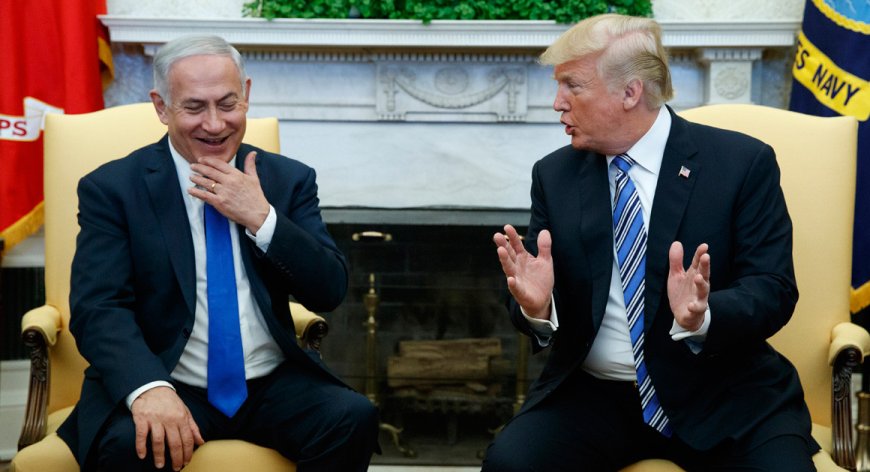Ceasefire Collapse: Netanyahu and Trump Withdrawal Deepens Gaza Crisis
Israeli Prime Minister Netanyahu and U.S. President Trump have withdrawn from Gaza ceasefire talks with Hamas in Qatar, blaming the group’s “bad faith” and suggesting harsher alternatives amid worsening humanitarian conditions.

In a dramatic turn of events on July 25, 2025, Prime Minister Benjamin Netanyahu and President Donald Trump withdrew Israeli and U.S. negotiators from contingency talks in Doha aimed at brokering a 60-day ceasefire in Gaza. Instead, both leaders publicly blamed Hamas for stalling the process and signaled intentions to explore tougher options to secure the release of remaining hostages and dismantle Hamas’s control over Gaza. The collapse raises fears of escalating military action and deepening humanitarian despair in the besieged territory. AP News+15AL-Monitor+15AP News+15
Crucial Flashpoints: What Brought Talks to a Halt
The ceasefire framework—mediated by Qatar, Egypt, and backed by the United States—included provisions for:
-
A 60-day truce, suspending active hostilities
-
Incremental release of approximately 50 hostages held by Hamas in exchange for Palestinian prisoners
-
Increased humanitarian aid into Gaza
However, negotiations unraveled over entrenched disagreements: Hamas insisted on a full Israeli withdrawal and an end to the war, while Israel demanded the group’s disarmament before any ceasefire. Axios+2Financial Times+2Al Jazeera+2WikipediaWikipedia+3AL-Monitor+3AP News+3Wikipedia+4AP News+4AP News+4AP News+1CBS News+1
On July 24, U.S. envoy Steve Witkoff abruptly recalled the American delegation, criticizing Hamas for its latest response as evidence of “lack of desire” to make a deal. Israel followed suit with its own delegation withdrawal. Reuters+15Financial Times+15AP News+15
Trump and Netanyahu Place Blame on Hamas
President Trump was unambiguous in attributing the breakdown to Hamas:
“We’re down to the final hostages … Hamas didn’t really want to make a deal. I think they want to die … now they’re going to be hunted down.” Financial Times+13Al Jazeera+13Axios+13
He echoed Witkoff’s sentiments, suggesting Israel should “finish the job” by eliminating Hamas entirely—a stark escalation beyond diplomatic channels. The Times of Israel+3Axios+3ABC+3
Netanyahu reinforced the alignment with U.S. rhetoric, stating Israel and Washington are considering “alternative options” to achieve their strategic goals. South China Morning Post+5AP News+5AP News+5
Hamas and Mediators Push Back
Hamas officials denied acting in bad faith, describing the U.S. withdrawal as a tactical pressure move. A spokesperson for the group emphasized their “sincere commitment” to reaching a viable ceasefire and expressed surprise at the outcome. Cadena SER+15AL-Monitor+15CBS News+15
Both mediators Qatar and Egypt attempted to downplay the collapse, stating that the negotiations were expected to resume once deliberations concluded. Yet timing and further engagement remain uncertain. Al Jazeera+3AP News+3Financial Times+3
Worsening Humanitarian Crisis in Gaza
While diplomatic uncertainty mounts, starvation, displacement, and destruction in Gaza have intensified. The United Nations estimates over 59,000 fatalities, with children dying due to acute malnutrition. Aid access remains severely restricted under Israeli blockade conditions. The Washington Post
Humanitarian groups including MSF and UNICEF warn of imminent famine. Charitable kitchens have dropped from over a million meals per day in April to just 160,000, leaving countless Gazans dependent on meagre rations. The Guardian+1AP News+1
Diplomatic Ripple Effects
The collapse has prompted swift diplomatic posturing:
-
France plans to recognize Palestinian statehood in September, signalling frustration with stalled diplomacy
-
The UK and Germany called for lifting aid restrictions and renewing calls for ceasefire while resisting immediate recognition Al Jazeera+5The Guardian+5The Washington Post+5
-
Critics argue that international inaction is moral abdication as Gaza nears cataclysmic conditions
Meanwhile, Netanyahu’s hardline coalition faces growing pressure to continue its military campaign despite global condemnation. The GuardianWikipedia
What's Next?
Alternative Strategies: Israel and the U.S. have not specified their plans, but Netanyahu’s and Trump's rhetoric suggests an escalation strategy behind closed doors. AL-MonitorAP News
Resumption of Talks?: Hamas and mediators maintain the possibility of renewed talks next week, though they may face greater leverage constraints. CBS NewsAL-Monitor
Hostage Plight: Roughly 50 hostages remain, with fewer than half believed alive. Their families report anguished uncertainty as negotiations limp forward. AP NewsReuters
International Pressure: Global leaders may coordinate on pushing for aid corridors and ceasefire resolutions, even without U.S. backing. The conflict continues to deepen fractures among diplomatic partners. The GuardianAP News
Conclusion
The abrupt end to ceasefire negotiations represents a major inflection point in the Gaza crisis. Netanyahu and Trump have shifted from diplomacy to open warning rhetoric against Hamas, while Gaza’s civilian population faces accelerating humanitarian collapse. With months of fighting fuelled by hardened rhetoric, the world watches as uncertainty grows—hostage releases stall, hunger escalates, and fragile promises of peace fray.
Until clear alternative solutions or renewed negotiations emerge, Gaza’s future hangs in a precarious waiting room between diplomacy and devastation.




















































